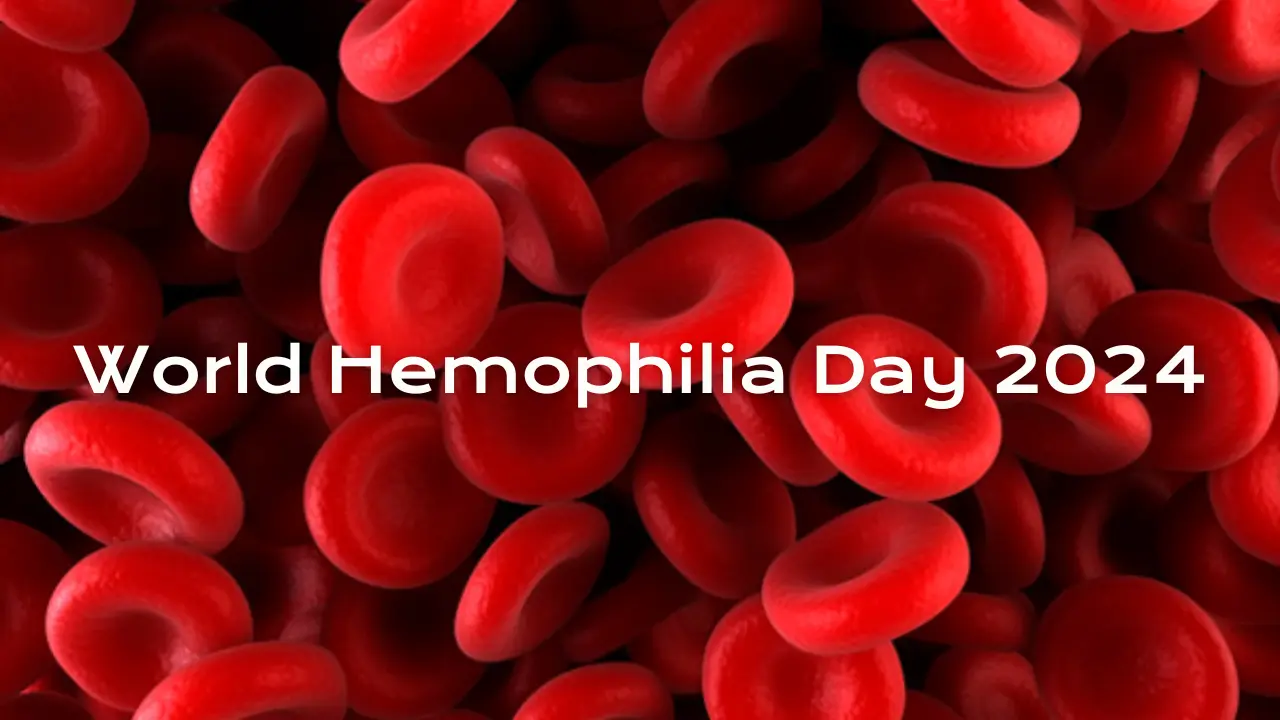World Hemophilia Day 2024
Every year on April 17, we observe World Hemophilia Day, a special day for people dealing with hemophilia. This day is all about making more people aware of hemophilia, helping those who have it, and working towards a better future for them.
Understanding Hemophilia
Hemophilia is a rare condition where the blood doesn’t clot properly because it’s missing some important clotting proteins. This makes it hard for people with hemophilia to stop bleeding, even from small injuries. It’s important to spread the word about this condition and make sure those affected get the right treatment.
Global Celebration and Goals
World Hemophilia Day is celebrated all around the world. The main goal is to improve how we diagnose hemophilia and make sure everyone can get the special treatment they need. The day also brings people with bleeding disorders together, creating a sense of togetherness.
World Hemophilia Day Theme 2024
The theme for World Hemophilia Day 2024 is “Equitable access for all: recognizing all bleeding disorders.”
History of World Hemophilia Day
Hemophilia has been around for a long time, and we first noticed it in the 10th century when people, especially men, bled a lot after small injuries. Back then, it was called Abulcasis. But because the technology was not as advanced, we couldn’t fully understand the illness. Some famous historical figures, like members of royal families, probably had hemophilia and were treated with aspirin, which made things worse.
In 1803, Dr. John Conrad Otto from Philadelphia started looking more closely at people who bled a lot, finding out it’s a genetic condition passed from mothers to sons. In 1926, a Finnish doctor named Erik von Willebrand described a similar bleeding illness affecting both men and women. They named it Von Willebrand Disease after him. In 1957, researchers in Sweden figured out that low levels of Von Willebrand factor cause the disease. In 1937, hemophilia was officially split into two categories: A and B.
Managing and Treating Hemophilia
Even though there’s no cure yet, people with hemophilia can manage it by getting regular injections of clotting factors to prevent unexpected bleeding. World Hemophilia Day was created in 1989 by the World Federation of Hemophilia to remember the organization’s founder, Frank Schnabel, on his birthday, April 17. The day is all about spreading awareness, understanding bleeding disorders, and raising money to help those who can’t afford treatment.
Significance of World Hemophilia Day
- Raising Awareness: Many people don’t know much about hemophilia, and this lack of knowledge can lead to late diagnosis and more serious problems. World Hemophilia Day helps spread the word to prevent these issues.
- Funding Research: The day also helps collect money for researching hemophilia. This research helps us learn more about how to deal with the condition and make things better for those who have it.
- Supporting People with Hemophilia: World Hemophilia Day connects people who have hemophilia, creating a supportive community. It also lets the rest of the world show that they care and support those dealing with this condition.
Conclusion
World Hemophilia Day is a special time dedicated to bringing hope and understanding to people with hemophilia. By talking about it, raising awareness, and gathering funds, we can make a positive difference in the lives of those affected by this rare bleeding disorder.
17th April 2024 Special Day
World Hemophilia Day on April 17th represents a symbolic timing for patient advocates to manifest optimism by honoring progress made while working ambitiously towards a future rid of suffering from the inherited bleeding disorder. As the distinct calendar date approaches, championing groups across borders come together, united by the mission to continue spreading awareness and expanding support networks for those coping with symptoms daily. The early arrival of 2024’s special day will be the perfect opportunity to set aspirational treatment targets, recalibrate health priorities, and rekindle hope for a day when gene therapies can permanently cap abnormal bleeding episodes. The occasion presents a chance to ignite worldwide momentum for positive change by having every stakeholder band together to improve the quality of life for hemophilia patients until a definitive cure is found.
- IBPS AFO Bank Wise Vacancy 2025 Out, Check Complete List
- SSC JE Previous Year Question Papers, Download the Free PDF
- IBPS AFO Bank Preference List 2025, Get Participating Banks List
- IBPS AFO Documents Required for Interview 2025, Complete List
- IBPS AFO Books 2025, Check Complete List of IBPS AFO Books
- IBPS AFO Full Form, Know Everything on AFO Full Form







